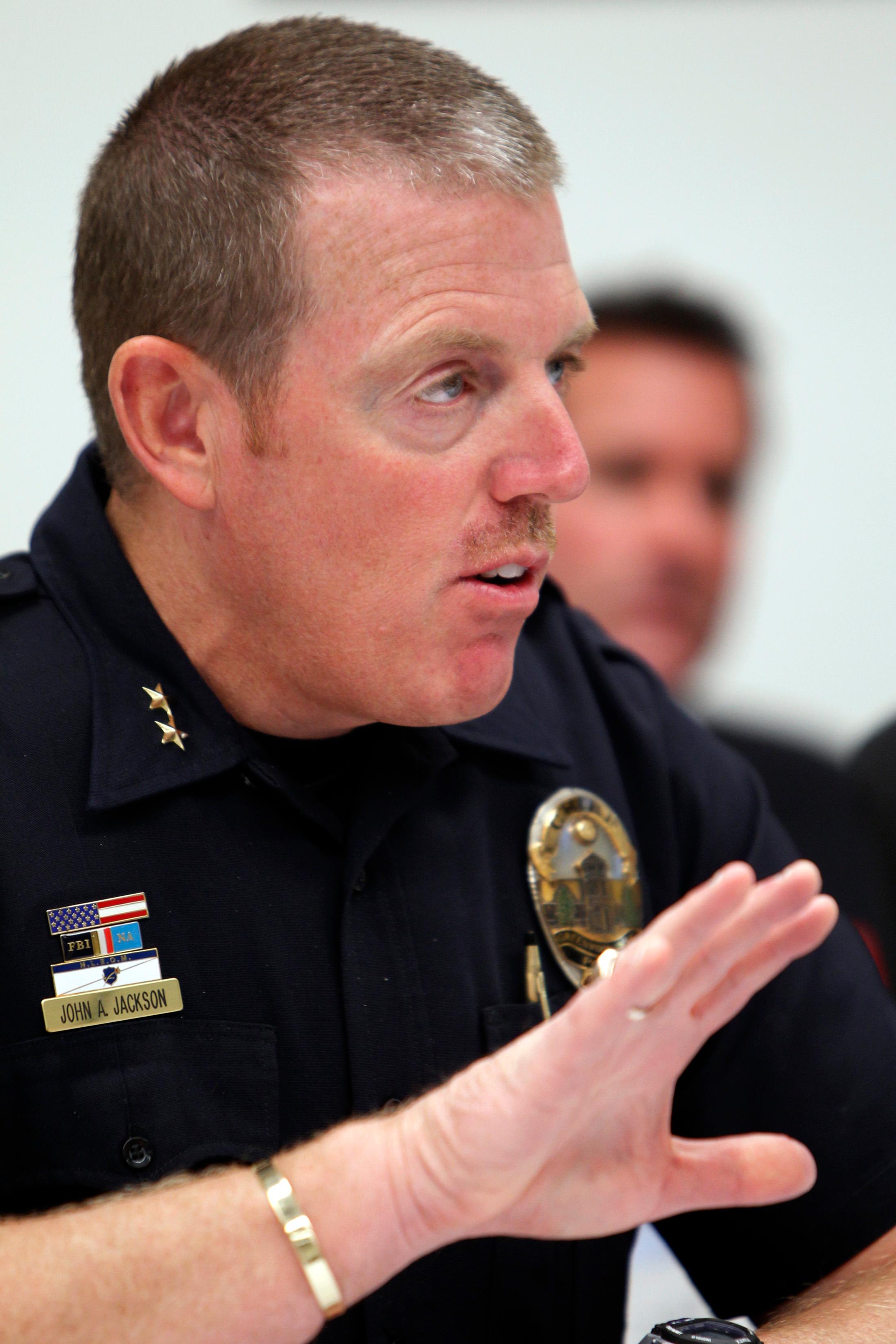
Colorado’s police officers are more vigilant after a gunman killed two police officers in New York City over the weekend.
The alleged gunman, Ismaaiyl Brinsley, posted to Instagram before the shooting: "They Take 1 of Ours... Let's Take 2 of Theirs.”
That was a reference to Michael Brown, the young man shot by an officer in Ferguson, Missouri, and Eric Garner, killed by an officer in New York.
“This last weekend was fairly tumultuous for all of us,” said John Jackson, the president of the Colorado Association of Chiefs of Police. “It’s a heinous act that American law enforcement is going to have to really respond to and live to make sure our communities are safe and that our officers are safe. That’s a very difficult balancing act.”
In response to the police deaths, Jackson, who is also Greenwood Village's chief, said agencies in Colorado have been teaming up officers for their safety. “A lot of it boils down to an awareness of what you’re dealing with,” Jackson said.
Those incidents have lead to protests and a national conversation about race and whether police are profiling the people they are sworn to protect. Jackson spoke with Colorado Matters host Ryan Warner on Tuesday about events in New York and the broader issue of racial profiling.
Jackson: Most officers don’t profile by race
Police in Colorado are required to take non-discrimination training courses, Jackson said.
However, a recent USA Today report showed a “staggering disparity” across the nation between the rates blacks are arrested and all other groups. That disparity holds true for every major police department in Colorado. In Denver, black people are about 3.7 times more likely to be arrested than non-blacks. In Boulder, the arrest rate of blacks is about 4.7 times the rate of non-blacks.
The ACLU of Colorado called those rates “alarming.”

“We know, for example, that African Americans are no more likely to use marijuana than Anglos and yet they are arrested at a far greater rate,” said Denise Maes, public policy director for the ACLU of Colorado. “And there’s other examples of other, you know, criminal actions that we know African Americans are no more likely to commit than Anglos and yet they are arrested at a disproportionate rate.”
Jackson agreed with Maes' assessment.
“She points out some very valid points,” he said. “As leaders in law enforcement agencies, we need to make sure we’re looking at our data to make sure we’re not racially profiling.”
Jackson said he reviews arrest data on a monthly basis to check for evidence of racial bias among his officers.
“I can tell you with great pride that I don’t have any thought that our police officers in Greenwood Village are doing anything professionally based on race,” Jackson said.
A “much-needed dialogue”
The incidents in New York and Ferguson have sparked a conversation among Colorado police chiefs. Jackson said he’s circulating a “position paper” for the chiefs association on racial profiling in an attempt to build trust between police departments and communities.
"The incidents of social unrest, outside of peaceful assemblies turning to outright criminal behavior, continue to occur across our great nation and it is disturbing, to say the least," the paper states, adding, "We are committed to serving the citizens of Colorado in a professional and highly ethical manner within the laws and policies we have all sworn an oath to uphold. We will be vigilant in our agency leadership to ensure that our officers continue to serve without bias and/or the use of excessive force."
While the incidents and subsequent protests have kick-started “much-needed dialogue,” in Jackson’s words, he also says they are to blame for a backlash against police.
“It should not be stood for. The whole process of killing police officers, or putting 'wings on pigs' is absolutely reprehensible to me,” Jackson said, noting that Brinsley had used that phrase on his Instagram account just before the officers in New York were slain.
Brinsley turned his gun on himself.
The position paper adds that any legislation that addresses police and community relations will be scrutinized by the association. The association, the paper states, "will not support legislation that is punitive, ill considered, or which negatively impacts the safety or due process of our citizens or officers."







